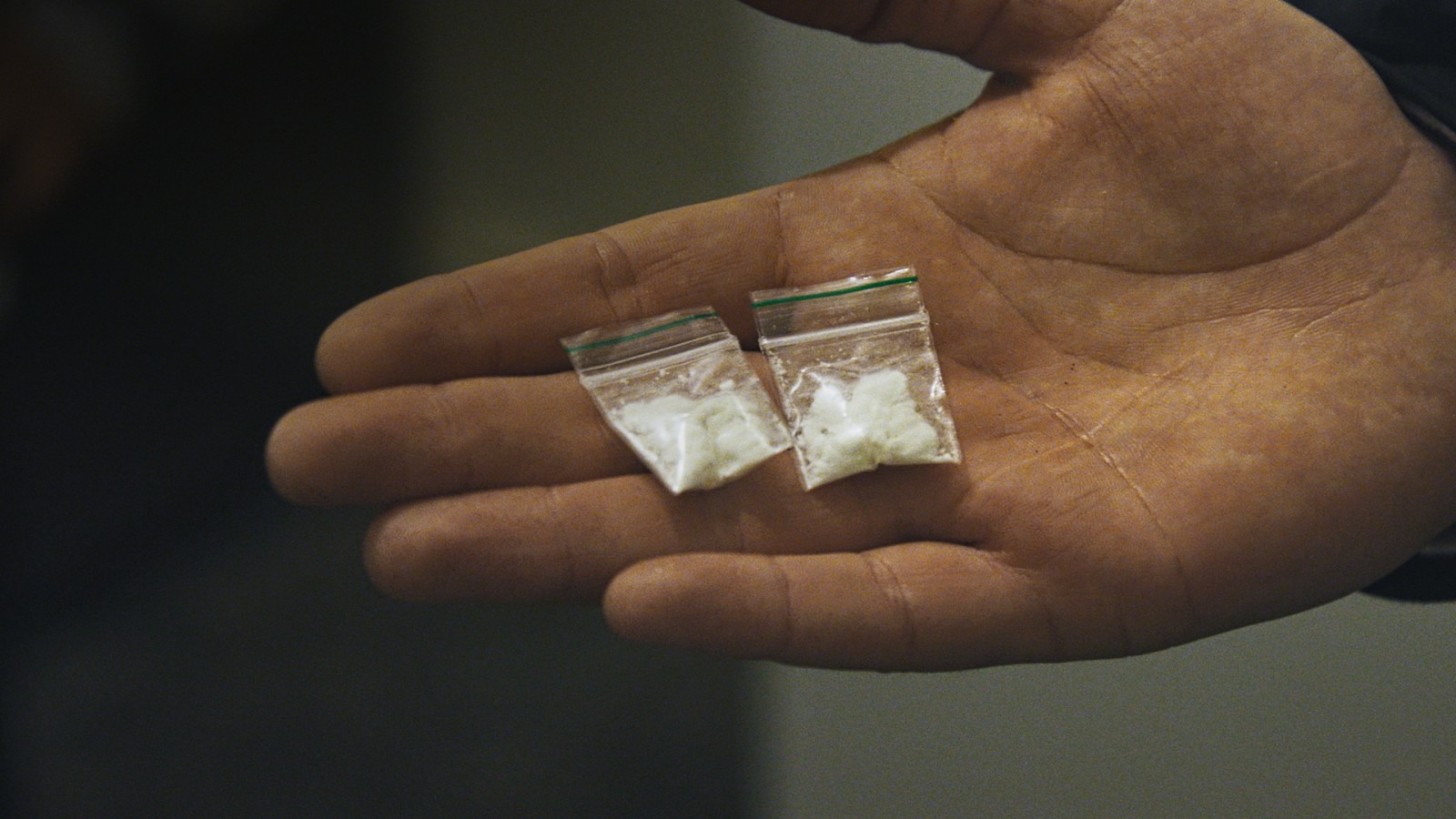Photo: Millwood Man
An “anti-cocaine spray” being used by police in the UK to stop people snorting in pubs has been criticised as a gimmick by drug safety experts. The spray, called Blokit, supposedly coats surfaces such as bars, toilet cisterns, pool tables and baby changing tables with an invisible film that ruins cocaine powder when people attempt to rack up lines. Officers from Durham Constabulary are using the spray in 24 pubs in Darlington, north east England, where drug sniffer dogs found evidence of cocaine, one of the most prevalent drugs in Britain, being used in venues. The makers of the spray said it is being used in 600 licensed premises across the country. It has also been used on surfaces in cinemas, colleges and libraries. They claim it has dramatically reduced drug use in problem pubs. But drug experts have questioned the effectiveness of the spray to stop drug use in venues. Many cocaine users in pubs snort the drug straight off keys, the corners of debit cards or simply chop up lines on their mobile phones. “Does anyone really snort off a cistern when they could just use a smartphone?” said Guy Jones, senior scientist at drug testing organisation The Loop. “Keys are so widely known as a cocaine dosing tool that they have become a slang unit of measure. Short of following people into the cubicle, I don’t see what pub landlords can be expected to do about people consuming such a popular drug.” The spray is one of a long line of tactics used by police and pub owners – unsuccessfully – to try to stop people snorting drugs in drinking venues. Other strategies include coating surfaces with vaseline or the lubricant WD40 – a policy recommended by police but later advised against on health grounds – and the eradication of flat surfaces in pub toilet areas including pebble-dashing cisterns and covering hand dryers with gravel. Some bars and clubs have assigned specialist toilet bouncers to deter restroom snorting, while others tried out the “cocaine torch”, which used UV light to detect powder up people’s nostrils, but turned out to be useless.Adam Waugh, who works for Psycare UK, a drug harm reduction charity, said: “This is the latest in a long line of gimmicks which have been suggested by police could reduce cocaine use in pubs and bars. The problem is none of these initiatives reduce harmful drug use, at best they displace it. In reality they risk distracting from policies that can save lives.”Darlington Borough Council paid Millwood Manufacturing £650 for 60 bottles of Blokit, which its makers say is a non-toxic mixture of resins and surfactants. Pub owners also receive posters stating ‘Blokit anti drug deterrent spray in use on these premises’.Millwood, which specialises in making detergents, has told Durham police that in the pubs where the spray is being used, there has been “an 80% reduction in drug-taking in their premises since its introduction”. When asked about how Millwood knew its product reduced drug taking in pubs by 80 percent, Paul Ward, technical director at Millwood told VICE World News the figure was an anecdotal one gleaned from feedback from landlords who said using the spray had led to a number of known coke users stopping drinking at their pubs. Ward said he had inquiries last week from police in Essex interested in using the spray, and that UK wide-brewery chain Mitchells and Butlers trialled the spray last year in 10 “problem” pubs, and still uses it in some of its venues. Mitchells and Butlers refused to comment on the use of Blokit due to its “security policy”. The spray is popular with pub landlords because, according to Ward, they often have to prove to police that they are doing something to tackle drug taking. “Police sometimes swab pubs with cocaine wipes and if they come up positive they send a letter asking the pub owners what they are going to do about it,” he said.But Jones said that many of the cocaine wipes used to detect if the drug has been used at venues can detect such minute amounts that it may not present a true picture. “A contaminated item, such as a phone or fingernail, could be carrying enough cocaine to give a positive test result. A single person could contaminate every surface they touch with enough cocaine to be detected, despite not ever using cocaine there.”The spray has also been trialled by a cleaning firm in cinemas in Wales, and in public libraries and toilets in Runcorn and Widnes in Cheshire. Halton Borough Council, which used the spray for three months in Runcorn and Widnes in 2019 said they discontinued using the spray after realising they did not have a cocaine problem, although they still use the spray at Widnes Market “on an ad-hoc basis.”A Durham police spokesman said: “If the product is successful at reducing drug use in venues in Darlington then we will look to expand it further across the Durham Constabulary area.”
The spray is one of a long line of tactics used by police and pub owners – unsuccessfully – to try to stop people snorting drugs in drinking venues. Other strategies include coating surfaces with vaseline or the lubricant WD40 – a policy recommended by police but later advised against on health grounds – and the eradication of flat surfaces in pub toilet areas including pebble-dashing cisterns and covering hand dryers with gravel. Some bars and clubs have assigned specialist toilet bouncers to deter restroom snorting, while others tried out the “cocaine torch”, which used UV light to detect powder up people’s nostrils, but turned out to be useless.Adam Waugh, who works for Psycare UK, a drug harm reduction charity, said: “This is the latest in a long line of gimmicks which have been suggested by police could reduce cocaine use in pubs and bars. The problem is none of these initiatives reduce harmful drug use, at best they displace it. In reality they risk distracting from policies that can save lives.”Darlington Borough Council paid Millwood Manufacturing £650 for 60 bottles of Blokit, which its makers say is a non-toxic mixture of resins and surfactants. Pub owners also receive posters stating ‘Blokit anti drug deterrent spray in use on these premises’.Millwood, which specialises in making detergents, has told Durham police that in the pubs where the spray is being used, there has been “an 80% reduction in drug-taking in their premises since its introduction”. When asked about how Millwood knew its product reduced drug taking in pubs by 80 percent, Paul Ward, technical director at Millwood told VICE World News the figure was an anecdotal one gleaned from feedback from landlords who said using the spray had led to a number of known coke users stopping drinking at their pubs. Ward said he had inquiries last week from police in Essex interested in using the spray, and that UK wide-brewery chain Mitchells and Butlers trialled the spray last year in 10 “problem” pubs, and still uses it in some of its venues. Mitchells and Butlers refused to comment on the use of Blokit due to its “security policy”. The spray is popular with pub landlords because, according to Ward, they often have to prove to police that they are doing something to tackle drug taking. “Police sometimes swab pubs with cocaine wipes and if they come up positive they send a letter asking the pub owners what they are going to do about it,” he said.But Jones said that many of the cocaine wipes used to detect if the drug has been used at venues can detect such minute amounts that it may not present a true picture. “A contaminated item, such as a phone or fingernail, could be carrying enough cocaine to give a positive test result. A single person could contaminate every surface they touch with enough cocaine to be detected, despite not ever using cocaine there.”The spray has also been trialled by a cleaning firm in cinemas in Wales, and in public libraries and toilets in Runcorn and Widnes in Cheshire. Halton Borough Council, which used the spray for three months in Runcorn and Widnes in 2019 said they discontinued using the spray after realising they did not have a cocaine problem, although they still use the spray at Widnes Market “on an ad-hoc basis.”A Durham police spokesman said: “If the product is successful at reducing drug use in venues in Darlington then we will look to expand it further across the Durham Constabulary area.”
Advertisement

Advertisement
Advertisement
